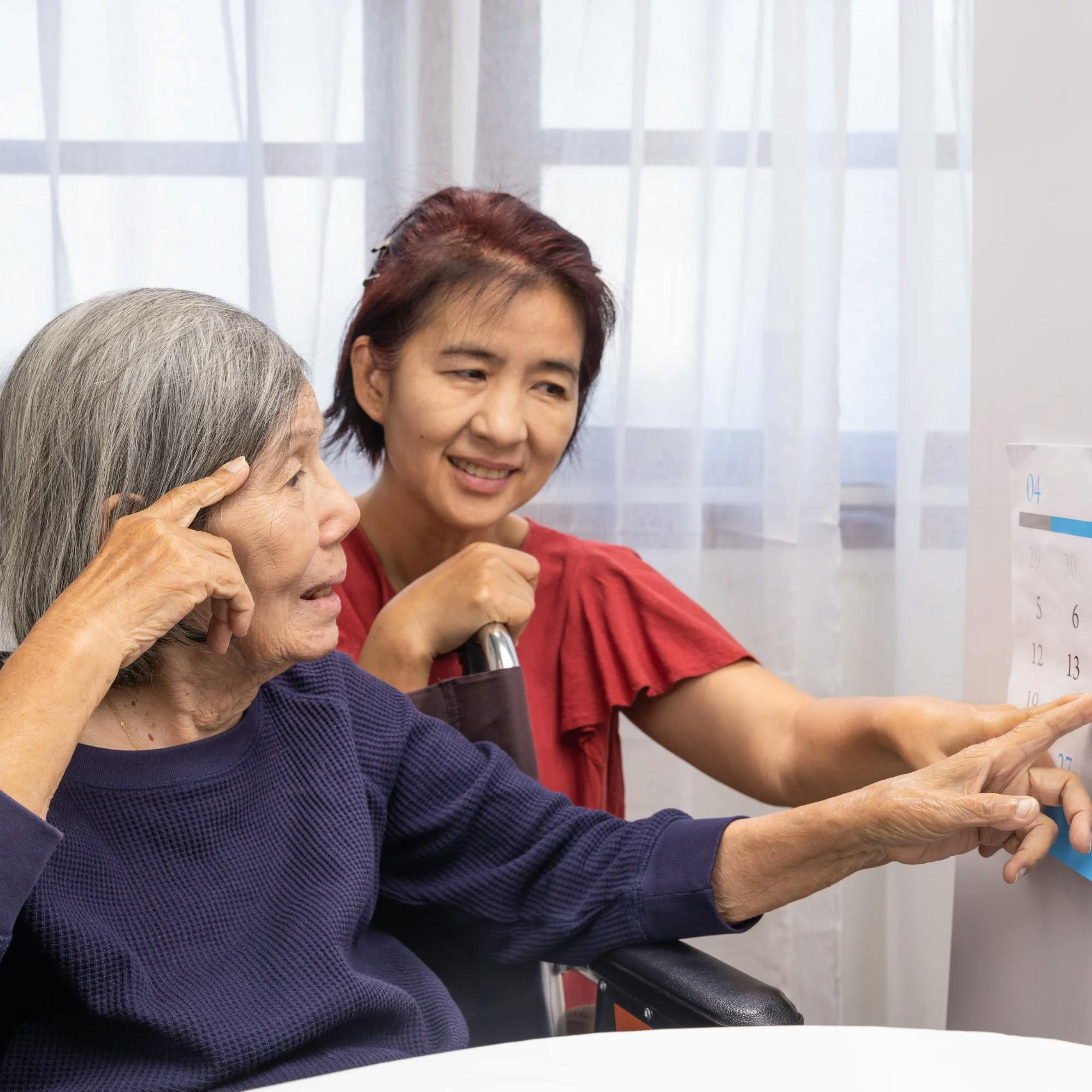At Expressable, we treat adults who are affected by acquired apraxia of speech. But treatment isn’t limited to the person with apraxia. We also help their family members and caregivers learn how to support them.
Whether your loved one had a stroke, brain injury, or another medical condition, we’re here to help you understand what’s going on and how you can support them with care and confidence.
Read on to learn about some simple, powerful ways you can make communication easier and more meaningful for a person with apraxia of speech.
Expert speech support for adults
If you'd like to improve your speech skills, we're here for you. Get matched with a licensed speech therapist today.
 Get started
Get startedWhat is acquired apraxia of speech?
Acquired apraxia of speech (AOS) is a speech disorder that makes it hard for someone to say what they want to say, even though they know the words. Apraxia happens when the brain has trouble sending the right messages to the muscles in the mouth needed for speech. This can make talking slow, unclear, or effortful.
Unlike muscle weakness, which affects strength or movement, apraxia of speech is a motor planning issue. Your brain knows what it wants to say, but it can’t get the words out correctly.
Common causes of acquired apraxia of speech
Acquired apraxia of speech usually happens suddenly after an injury, but it can also appear more slowly with progressive conditions. The main causes of acquired apraxia include:
Brain tumors or surgery
Neurological conditions, like dementia or Parkinson’s disease
Signs and symptoms of acquired apraxia of speech
Every person’s experience with apraxia is different, but here are some common signs:
Saying a word correctly one time but struggling the next
“Groping” movements of the lips or tongue while trying to speak
Slow or robotic-sounding speech
Trouble starting a sentence or repeating the same sound
Mistakes on longer or more complex words
Saying the wrong word or adding sounds
Frequent restarts or self-corrections
Easier time with automatic phrases like “hello” or “thank you”


How to support a loved one with acquired apraxia of speech
When someone you love has apraxia of speech, it’s normal to feel unsure about what to do or say. But your support can make a big difference. Here are some simple, caring ways to help someone with apraxia:
1 Be patient and kind
Give them extra time to speak. Don’t rush or interrupt. Just wait and listen.
2 Let them finish
Avoid guessing or finishing their sentences (unless they ask for help).
3 Create a calm space when talking
Turn off the TV or other distractions. A quiet, relaxed environment helps with focus and ease.
4 Ask easier questions
Try yes-or-no questions or give choices. For example:
“Do you want coffee or tea?” instead of “What do you want to drink?”
“Was it the dentist or the eye doctor?” instead of “Who said that?”
5 Talk face-to-face
Eye contact and facial expressions go a long way in making communication smoother.


6 Use other ways to talk
Gestures, writing, pointing, pictures, or AAC devices can all support communication. Encourage your loved one to use whatever helps.
7 Stay honest and open
If you don’t understand, it’s OK to say so. Repeat what you did understand and ask about the part you missed.
8 Manage frustration together
Plan ahead: how many tries before switching to writing or pointing? Having a plan can ease stress for both of you.
9 Practice at home
If your speech therapist gives home exercises for apraxia, practicing together shows encouragement and helps build progress.
10 Try video calls instead of phone calls
Seeing each other’s faces, lips, and expressions can really help with understanding and connection.


Expert support for acquired apraxia of speech
If you or someone you love is living with acquired apraxia of speech, remember you're not alone, and progress is possible. With the right support and care, communication can improve, and confidence can grow.
At Expressable, our licensed speech therapists specialize in helping adults with apraxia of speech. We provide one-on-one speech therapy online, tailored to your needs and lifestyle.
Get started by finding the right speech therapist! We’re here to help every step of the way.
How Expressable Can Help
Concerned your child isn't reaching age-expected milestones? Looking for communication support from a professional? Expressable is a national online speech therapy practice serving children and adults. We treat all major areas of communication and feeding, offer flexible hours including evenings and weekends, and accept most major health insurance plans. We’re proud to have earned more than 3,000 5-star reviews from our clients (4.9/5 average).
Our therapy model is centered on parent and caregiver involvement. Research proves that empowering caregivers to participate in their loved one’s therapy leads to better outcomes. That’s why we combine live, 1-on-1 speech therapy with personalized education and home practice activities for faster progress.
Communication is more than words. It’s how we share how we feel and show who we are. We’re here to help you or your child do just that.

 Alexis Irazoque, M.S., CCC-SLP
Alexis Irazoque, M.S., CCC-SLP









